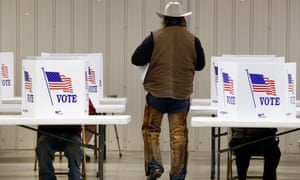
'Israël is een koloniale macht en niemand ligt er wakker van'

Harm Ede Botje

De uitgezette NRC-correspondent Derk Walters en Ha’aretz-verslaggever Amira Hass spraken afgelopen week in een bomvol Nieuwspoort over pers en persvrijheid in Israël. ‘De leugens, de propaganda, het ging maar door.’
‘Israël is een koloniserende staat.’
‘Israël heeft een apartheidsregime.’
‘Gaza is een gigantisch concentratiekamp.’
‘Op de Westbank zijn Bantustans ontstaan.‘
‘We moeten aanvaarden dat Israël een koloniale staat is, waarbij de originele bevolking eruit wordt gejaagd en een nieuwe groep wordt geplaatst.’
Bovenstaande uitspraken zijn niet afkomstig van een Arabische Israël-hater of een linkse activist, maar van Amira Hass, sterverslaggever van de Israëlische kwaliteitskrantHa’aretz. Al twintig jaar woont ze in de Palestijnse stad Ramallah op de Westbank, van waaruit ze verslag doet van de ‘misdaden die dag in dag uit’ worden gepleegd door het Israëlische leger. Deze week was ze te gast in Nederland.
In de Nederlandse media is het Israëlisch-Palestijnse conflict zo goed als van de agenda verdwenen, óók bij Vrij Nederland. Het is steeds meer van hetzelfde, het is een uitzichtloos conflict. Stichting Een Ander Joods Geluid wil het onderwerp op de agenda houden en organiseerde aflopen week het Enough = Enough-festival. Ze vroegen mij een avond te leiden waarin Amira Hass (welbespraakt, vol met verhalen, fel) en de NRC-correspondent Derk Walters (bedachtzaam, bescheiden) in een bomvol Nieuwspoort met elkaar in gesprek gingen.
Dat Walters er was, is bijzonder. Hij is de eerste Nederlandse journalist ooit die door de Israëlische autoriteiten de deur werd gewezen: hij moest uiterlijk 1 juli 2017 het land verlaten. Walters werd gevraagd bij Pauw en andere talkshows maar hield alles af. Nu kijkt hij voor het eerst publiekelijk terug op de turbulente gebeurtenissen.

‘Wij zijn IS niet!’
Voor ik verslag doe van het gesprek, die avond, schets ik het hoe en waarom van Walters vlucht uit Israël: het begon allemaal anderhalf jaar geleden, toen Walters een stuk schreef over de nederzetting in Hebron. Daar kwamen in korte tijd kolonisten om het leven door messteken. Walters schreef:
“De inwoners van Hebron geloven het eenvoudigweg niet meer als de Israëlische autoriteiten zeggen dat ze een Palestijnse messentrekker hebben doodgeschoten. Dat mes, zeggen de Palestijnen dan, is er neergelegd door de Israëliërs.”
Het Government Press Office (GPO) reageerde woedend: het zou onzin zijn dat messen werden neergelegd. ‘Wij zijn IS niet!’ Walters zou een ‘vijandig’ en ‘partijdig’ beeld hebben geschetst van de situatie in Hebron, en werd in een daarop volgende reeks emails dan ook beschuldigd van partijdigheid en zelfs ‘antisemitisme’. Glenys Sugarman van de Foreign Press Association (FPA) in Israël noemde het gedwongen vertrek van Walters raadsel, in NRC: ‘Ik kan het niet verklaren. Het moet het stellen van een voorbeeld zijn, iets anders kan ik niet bedenken.’ Ook zei Sugarman: ‘De overheid gedraagt zich vijandig tegen iedereen die de overheid of andere autoriteiten bekritiseert. De laatste twee, drie jaar lijkt het wel alsof de gemoedstoestand in het land is veranderd.’
Wat de affaire extra pikant maakte was dat Walters in een van de emails van de GPO een blijkbaar door de verzender vergeten passage aantrof, in het Hebreeuws, duidelijk niet voor zijn ogen bestemd. Er stonden zinnen als ‘we gaan ze flink laten zweten’ en ‘ik maak het hem moeilijk over zijn adres in Tel Aviv, omdat ik weet dat hij naar Oost-Jeruzalem is verhuisd’. Uit de passage klonk een enorm dédain. Walters: ‘Vlak daarvoor had ik een hele negatieve mail gekregen waarin stond dat ik alles fout deed wat je maar fout kon doen. Daar was ik heel ongelukkig over. Maar door de per ongeluk aan mij verstuurde interne communicatie begreep ik dat het een spelletje was dat ze met me speelden. Ik voelde opluchting.’ De Israëli’s blijven overigens beweren dat Walters zich simpelweg niet heeft gehouden aan visum-vereisten en zijn adreswijziging niet had doorgegeven: daarom moest hij het land verlaten.
‘De leugens, de propaganda, het ging maar door.’
Hoe kan het, vraag je je af dat Amira Hass – die nog veel kritischer is, en dat al jaren lang – gewoon haar werk kan blijven doen.
In de jaren negentig was Hass een van de weinigen die niet geloofden in het Oslo-akkoord. ‘Ik zag wat er op de grond gebeurde, en was zeer argwanend. Bij mij op de redactie zei een chef dat ik het niet scherp zag omdat ik ter plaatse was! Echt waar!’ Nadat in 2000 de tweede intifada uitbrak ergerde ze zich wild aan het beeld dat Israël aan de wereld presenteerde: dat van de boze Palestijnen die het kleine, zwakke, zielige Israël aanvielen. ‘Mijn stukken werden geplaatst in de kelder, op pagina 8, terwijl op de voorpagina stukken verschenen waarin stond dat Arafat de oorlog had verklaard.’ Ze zag hoe Israël de werkelijkheid geweld aan deed. ‘De leugens, de propaganda, het ging maar door. Dan werd er gezegd dat Palestijnen het vuur hadden geopend, terwijl in werkelijkheid de Israëli drie uur daarvoor waren begonnen.’
Dan werd er gezegd dat Palestijnen het vuur hadden geopend, terwijl in werkelijkheid de Israëli drie uur daarvoor waren begonnen.
Hass doet veel onderzoek, vooral ook naar onderwerpen die moeilijk te verkopen zijn. Over de alledaagse werkelijkheid van het leven onder het juk van een koloniserende staat. Misdaden van de bezetting, dat is niet de juiste benaming, vindt Hass: ‘Dat impliceert dat het ook mogelijk zou zijn om een bezetting te hebben zonder misdaden.’ Daarom spreekt zij liever van een ‘koloniserende staat’.
Neem nou het Palestijnse land aan de andere kant van de door Israël gebouwde afscheidingsmuur? De Israëli’s zeiden altijd dat het land Palestijns zou blijven, dat het alleen maar om de veiligheid ging. ‘Bullshit,’ vindt Hass. ‘We wisten allemaal dat het uiteindelijk zou worden afgepakt.’ Uit haar onderzoek blijkt dat Palestijnen er heel moeilijk naartoe kunnen. Ze moeten vergunningen aanvragen – de poorten in de muur gaan maar een paar keer per dag open – als de eigenaar sterft moet het land verdeeld worden onder de nabestaanden, als er te veel nabestaanden zijn en het land dus versnipperd raakt, achtten de Israëli’s het niet langer meer geschikt voor landbouw. Het zijn dit soort kleine pesterijen, waar geen journalist over bericht, de de bezetting ondraaglijk maken: het eindeloos in de rij staan bij checkpoints, de bureaucratie, de invallen, het opblazen van huizen, het confiskeren van land, et cetera.
De enige verklaring die Hass kan geven dat ze ongestoord haar gang kan gaan (en zelfs zonder vergunning in Ramallah woont) is dat ze een Israëlische Jood is. ‘En Israël is nog steeds een democratie voor Joden,’ zegt Hass. ‘Weliswaar wordt die rechtsstaat nu uitgehold, worden mensenrechtenactivisten hard aangepakt, zijn er ministers met heel ondemocratische opvattingen, maar het is nog steeds een democratie, inclusief het recht op vrijheid van meningsuiting.’
Haar verhalen hebben weinig impact, vindt ze. ‘Veertig jaar geleden was er nog een soort schaamte, de Arbeiderspartij zat in de Socialistische Internationale en wilde zich houden aan internationale verdragen. Maar dat is nu helemaal verdwenen. In Israël is het suprematistische gedachtegoed nu heel gangbaar: we zien onszelf als meer waard dan anderen, we zijn beter, we lijden meer, we zijn altijd het slachtoffer.’
In Israël is het suprematistische gedachtegoed nu heel gangbaar: we zien onszelf als meer waard dan anderen, we zijn beter, we lijden meer, we zijn altijd het slachtoffer.

Europa moet wel druk zetten
Aan het slot van het gesprek vraag ik wat we hier in Europa kunnen doen om een doorbraak te forceren. Walters zegt dat hij ‘verbaasd is’ door het totale gebrek aan druk vanuit Europa op Israël. ‘Als je in Tel Aviv praat over de relaties geven ze altijd hoog op van de culturele banden met Israël. Geweldig, je kan vast goed zaken doen, het is een markt met acht miljoen mensen. Maar als je hun gedrag een beetje wilt veranderen moet je wel druk zetten. Al tijden wordt gesproken over het apart etiketteren van goederen uit de bezette gebieden, laat ze eerst dat maar proberen.’
Amira Hass is strenger, nog: zij hoopt dat Europa opnieuw de visumplicht invoert. ‘Je moet tegen Israël zeggen: jullie houden je niet aan de internationale afspraken. Al die overtredingen van het humanitaire recht moeten jullie niet langer tolereren en dus voeren we de visumplicht opnieuw in. En oh, ja, we maken geen onderscheid tussen kolonisten en mensen uit Israël zelf. Én heroverweeg de relaties met alle bedrijven die connecties hebben met de bezette gebieden, en dat is 98 procent van alle bedrijven. Kijk naar sport, wetenschap, cultuur.’
De Israëlische bezetting, wat lost het op?
Terwijl Hass bezig is met haar betoog staat in het publiek Hanna Luden op, werkzaam bij het Centrum Informatie en Documentatie Israël (CIDI). Ze vraagt of met dit soort boycot-acties de problemen tussen Israël en Palestijnen worden opgelost. Hass antwoordt, wat vinnig: ‘Er zíjn geen problemen tussen Israëli’s en Palestijnen. Het gaat hier om de problemen van de Israëlische bezetting.’
Luden: Goed, prima, de Israëlische bezetting, wat lost het op?
Hass: ‘Zo’n visumplicht lost niet direct iets op, maar is wel een boodschap: de wereld vindt het niet normaal, wat de Israëli’s doen. Dat de Westerse wereld het niet langer accepteert. Want in Israël denken mensen dat het allemaal normaal is om lekker te leven in Tel Aviv, naar een concert te gaan, terwijl je zoon of dochter elke nacht tien, twintig, dertig Palestijnse huizen doorzoekt, kinderen bang maakt, geweren richt op kinderen, alle huisraad vernietigt, mensen arresteert, alleen maar om te achterhalen wie er een steen heeft gegooid op de Westbank. Daarna komen ze terug en dan ga je lekker een weekeindje naar Amsterdam.
Wij, Israëlische journalisten, Israëlische activisten, zeggen al lange tijd gezegd dat het fout is om een bevolking vijftig jaar lang zonder enige rechten te laten zitten. Om hun land te controleren, hun water af te nemen… Voor elke vier liter voor een Israëli is er in de Bezette Gebieden één liter voor een Palestijn. Daar is geen enkele veiligheidsverklaring voor.
Waarom krijgen tienduizend kolonisten in de Jordaanvallei 30 miljoen liter per jaar, terwijl 2,5 miljoen Palestijnen 120 miljoen liter tot hun beschikking hebben? Maar de Israëli’s luisteren niet en dat kan niet zo door kan gaan. En nu Israëli’s niet naar de rede willen luisteren, de feiten niet meer willen zien overal excuses voor hebben, moet de ouder in de kamer ingrijpen. En die ouder is Europa, nu Trump in het Witte Huis zit. En die ouder? Dat is niet meer dan een dwerg.’
Het is een treurige conclusie. Derk Walters wordt boekenredacteur bij NRC Handelsblad, Amera Hass gaat weer terug naar Ramallah. Haar verhalen zijn te volgen via de site van Ha’aretz






